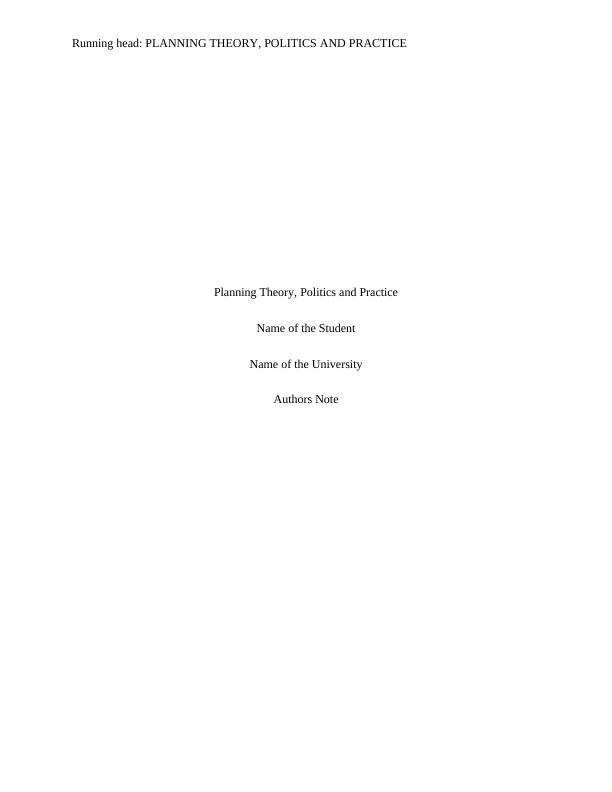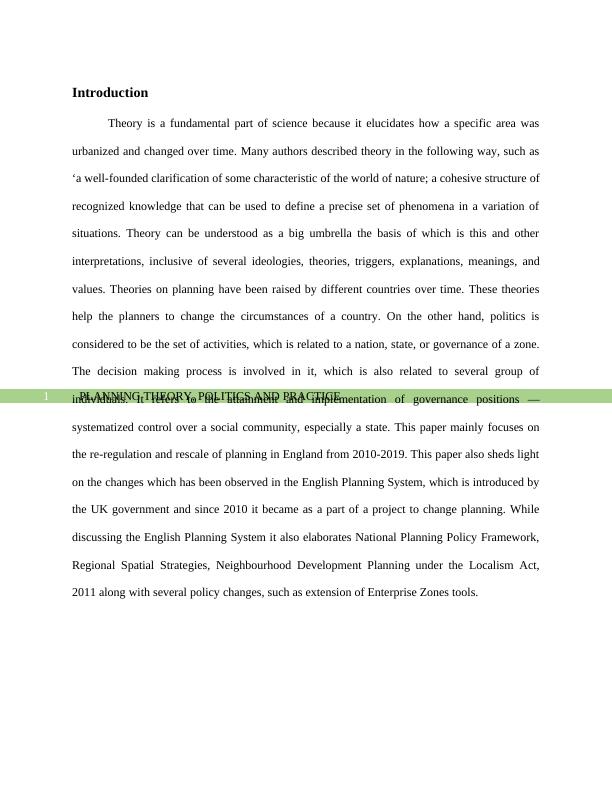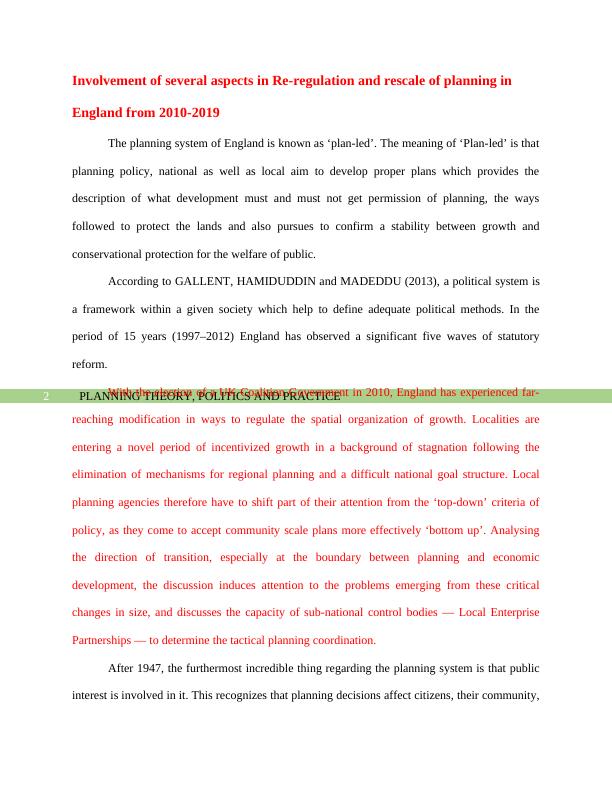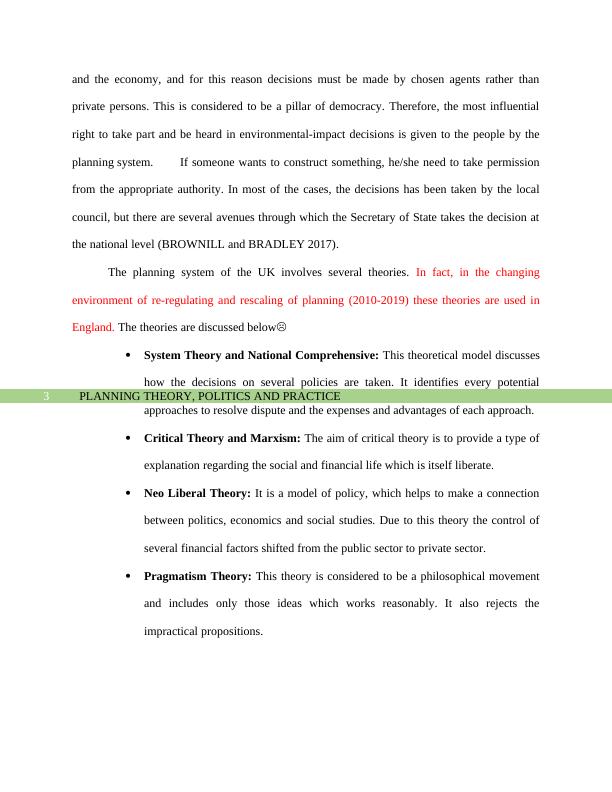Planning Theory, Politics and Practice | Study
Reflect on the changes to the English Planning System introduced by the UK government since 2010, with a focus on the rescaling of planning activity. The essay should draw on theory and sources indicated during the module and wider reading, and analyze the motives and consequences of these changes.
18 Pages4247 Words34 Views
Added on 2022-09-01
Planning Theory, Politics and Practice | Study
Reflect on the changes to the English Planning System introduced by the UK government since 2010, with a focus on the rescaling of planning activity. The essay should draw on theory and sources indicated during the module and wider reading, and analyze the motives and consequences of these changes.
Added on 2022-09-01
ShareRelated Documents
End of preview
Want to access all the pages? Upload your documents or become a member.
Rise of English Nationalism and Extreme Nationalistic Feelings in England
|10
|3467
|211
1-ELEVENCE OF NEIGHBOURHOOD UNIT BY C. Perry IN TODAY'S ERA BY JASNEET SINGH NARU
|14
|5205
|230
Spatial Planning and Infrastructure
|8
|1198
|76
Education Studies | School Privatization in Germany
|11
|3196
|22
The Travel and Tourism Sector
|8
|419
|423
China’s Economic Growth Assignment PDF
|4
|886
|107




